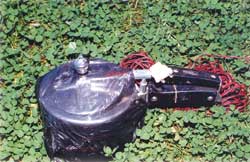 Nepali public opinion is sluggish, but it is cautiously in favour of the government's decision to impose an emergency. No one has done a public opinion poll, but there is conditional support. Most Nepalis are saying: we understand you have to take away some of our rights temporarily, and if that's what you need to solve this crisis once and for all then go ahead, but don't take too long. If the emergency is to keep this support, the rumblings of police high-handedness in some hill and tarai towns need to be addressed urgently.
Nepali public opinion is sluggish, but it is cautiously in favour of the government's decision to impose an emergency. No one has done a public opinion poll, but there is conditional support. Most Nepalis are saying: we understand you have to take away some of our rights temporarily, and if that's what you need to solve this crisis once and for all then go ahead, but don't take too long. If the emergency is to keep this support, the rumblings of police high-handedness in some hill and tarai towns need to be addressed urgently.
Let us not forget that there is a strong peace constituency in this country. And although both the government and the Maoists have lashed out at each other for scuttling the negotiations, it is the rebel side that has taken most of the public blame. This may have given the government and the military a sense that it will always be that way. So far, the all-too-quickly supportive press has ensured that only the official version of events is getting out. This has lulled the public for now. But the peoples' opinion is fickle. You can never tell when you have crossed a certain threshold of credibility, after which no matter what you do-even if you tell the truth-the public will not believe you.
The government has been sparing in its use of emergency powers vis-?-vis the media. But actually it has not been required to do much, since self-censorship is near complete. Little, besides the contents of the Defence Ministry's "Four o'clock Follies", ever makes it to print. In fact, most mainstream papers have gone beyond the official version to paint a picture of utter rout of the Maoist cadre, headlining reports of deaths-exaggerated, it turns out-of top comrades in Rolpa.
It is tempting for officialdom everywhere when caught in conflict to keep a tight lid on information. But officialdom has difficulty learning that this does not mean it should make things up, or give such a one-sided version of events that it squanders the public's trust. It is this trust that the government will need, even to make its own version of events believable.
The official version of events may actually be true. It may be true that scores of officials in "peoples' government" at the local level are resigning every day in Sindhupalchok (by the way, why is this only happening in Sindhupalchok?) or that Maoist attackers are invariably repelled by army units using "long range weapons", and the Maoists always suffer heavy casualties. But the bulletins are beginning to sound a bit like, er, Panchayat-era Radio Nepal.
People want the truth, not just the news. Ignorance is much more dangerous than an informed public. And there is a clear and present danger of a credibility gap that could undermine one of the most important accomplishments of the past 12 years of democracy in this country: a healthy, professional, and credible media.
The media guidelines of the Defence Ministry are fairly crude. In hindsight, the ministry needn't have bothered, since many in media seem to have been most willing to go along. No, the real problem is not whether or not the media will toe the line. It is to ensure that the various organs of government get their facts right, and do not contradict each other as they are doing now. Information Minister Jayprakash Prasad Gupta assures us the government is in the process of coordinating the dissemination of information and making it more reliable (see interview). Let's hope his efforts bear fruit.
The moral of the story is that even during an emergency you cannot afford to insult the intelligence of the public. After a decade of free press, Nepalis are now alert, sensible and show a remarkable capacity to fathom the truth even during an information blackout. It would be much smarter for the government to give it straight.
This is a pressure cooker war in more ways than one. The best safety valve is correct, reliable information that is swiftly and widely accessible to the public..


